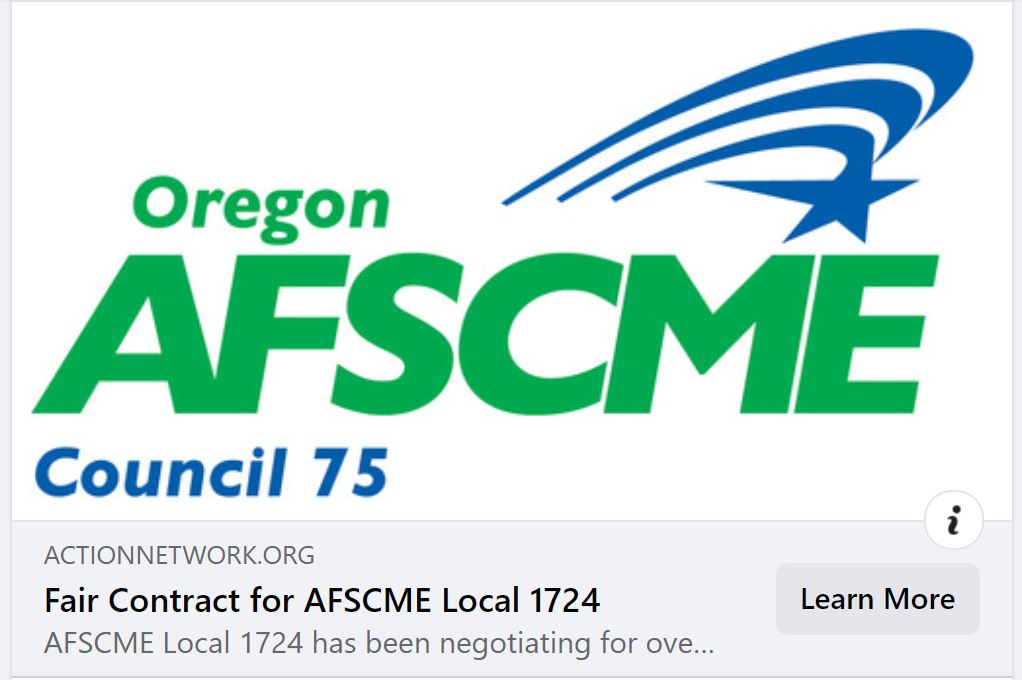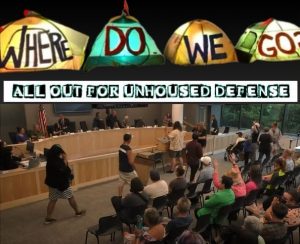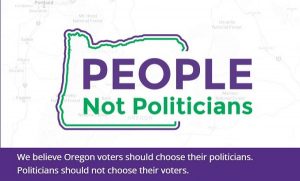City’s essential workers ask for fair contract
6 min read
Essential City workers asked the Eugene City Council for a fair contract offer.
During public comment October 25, union officials asked the Eugene City Council for a fair contract.
[00:00:08] Wendy Beck: Hello. My name is Wendy Beck and as of October 3rd, I’ve worked with the City of Eugene for 18 years, and I’m also an elected official on AFSCME 1724 executive board and a member of AFSCME’s contract bargaining team. I come to you not only with concerns I have as a City of Eugene employee and resident of Eugene, but also with the collective concerns of 600+ AFSCME members I help represent. The city recently announced that managers and other non-union-represented employees will receive a 6 percent pay increase effective January, 2022, while management plans to only offer a 1 percent cost of living increase to AFSCME workers.
[00:00:53] How is such a pay increase justified for management, but not for unionized employees? We’ve been told there’s a budget deficit, but where is the money for management’s increase coming from? How is this different and COLAs reasonable? We all live in the same communities, pay the same taxes, and shop at the same stores. We too have rent and mortgages. Our wages need to be competitive also, and yet we lag behind other jurisdictions. We can’t begin to keep up with inflation with a 1 percent COLA (Cost Of Living Adjustment).
[00:01:25] AFSCME employees across the board are reaching out to us to let us know they feel disrespected and undervalued. We are asking for fair market-based wages and for a contract that compensates us adequately—a fair contract that is not a gift, but one we’ve earned.
Thank you for supporting
local citizen journalism
[00:01:44] Dal Ollek: My name is Dal Ollek. I am the local president for AFSCME 1724, the City’s largest labor union. We represent 635 members, and we are the general service workers for the City of Eugene. Our members include the office support staff, program coordinators, custodians, library workers, parks and maintenance workers.
[00:02:09] We work to improve the community, provide clean water and to keep the streets, parks, libraries, rec centers safe, clean and beautiful. At the start of the pandemic before the vaccines, many of our members were classified as essential workers. This meant we were required to come into work every day. Together we put ourselves and our families at risk, and while our supervisors and managers are mostly able to work from home, we came to work every day. We proudly served our community when it was needed.
[00:02:40] We’ve been in contract negotiations with the city since March. While we’ve made some progress, we have yet to reach a fair contract. Many of you may have noticed that the cost of groceries, gas, and rent have increased over the past year. The city is offering us a 1 percent pay increase based on the cost of living in the first year of a contract. The average wage for the bargaining unit is approximately $18.50. That’s that pay increase would be $28 a month. And the average employee, the city is saying that they don’t have the resources for a higher cost of living adjustment. Yet, they are able to give themselves a 6 percent wage increase. This amounts to $344 a month for the average manager. How is this even fair? We live in the same community. We attend the same schools. We shop at the same stores. Prices are going up. Our members are feeling the pinch. The stalled negotiations and the lack of a fair contract is impacting employee morale.
[00:03:43] The message to employees seems to be that management doesn’t care about them; that their hard work and sacrifice during the pandemic has been forgotten. We think the city managers need to do better. We’re asking for a contract that recognizes our contribution and service to the community, and that keeps our wages in market.
[00:04:01] A fair contract based on family wages and equitable benefits. We ask your assistance, in bringing these negotiations to a close. Thank you.
[00:04:10] Ruxton Schuh: My name is Ruxton Schuh and in full disclosure, I am an employee of the City of Eugene and I am here on my personal time and using my personal resources. I am a member of AFSCME Council 1724 and am on our contract bargaining committee. I am here to discuss the affront on our member rights as city management has proposed contract language that would permanently weakened our union security.
[00:04:31] City management told the unions bargaining committee that any financial package being offered was contingent on the union, accepting their modifications to our contracts, layoff language. This language would allow them to weaken our layoff rights in three key ways. It greatly reduces union involvement in the layoff process.
[00:04:49] It broadens the definition of when the layoff process can be leveraged and it introduces a plan to reduce workers’ hours for up to 25 percent of their hours for up to six months at a time. This means a full time employee would be reduced to 30 hours per week. For example, the senior administrative specialists making $2,850 per month would have their pay reduced by over $700 each month.
[00:05:13] Our members are declaring en masse that they cannot financially weather this burden. We are not talking about the comfort of life, but the ability to secure basic necessities: Housing, groceries, transportation. And so on.
[00:05:26] Further, management’s proposal does not limit how or when the cuts could be implemented, allows for multiple six-month periods to be implemented, eliminates employee security rights and reduces the ability of the union to suggest alternatives and cost cutting measures.
[00:05:41] AFSCME has a long-standing contract with the city. We have successfully negotiated economic downturns in the early nineties and in the Great Recession. The contract layoff provisions are tested and proven to be effective. No other bargaining units at the city are being asked to give up their seniority rights and accept a 25 percent reduction in pay for up to six months.
[00:06:01] In fact, no other jurisdiction in the state is asking their workers to accept a mandatory furloughs. Please understand that we cannot afford to accept this language now, nor can we afford to pass this along to all future AFSCME employees at the City of Eugene. We are your community members, your neighbors, our children attend your schools and we frequent your businesses.
[00:06:24] Please understand that giving city management, this self-proclaimed tool to right-size the organization cannot come at the expense of our members prosperity. Thank you.
[00:06:36] Linda Baker: My name is Linda Baker and I work in planning and development. I’m AFSCME union president of four J parents, a U of O student and essential worker. I’ve worked on-site in the office daily since the beginning of the pandemic. And I’m really proud to have been a part of what kept this city moving along during the pandemic, I’m a member of AFSCME, which is the lowest paid bargaining group in the city. And I’m also the lowest paid person on my work team. I pay a larger portion of my pay to the city’s insurance premiums than my boss. My retirement contribution is matched by the city at 2 percent. And my supervisor’s retirement contribution is matched at 3 percent. I am at the top step of my pay rate and I receive no step increases, only the 1 percent COLA increase the city offers us, which will amount to a 25 cent pay increase. The city is giving my supervisor a COLA increase of nearly 6 percent in January. And the only requirement is that my supervisor have an aspirational conversation with their supervisor. They call this performance pay. The city’s motivation for this pay increase is so they can retain talent and that this is something that they’ve learned is important during COVID, even if they need to reduce city services.
[00:07:46] City leadership wants the ability to also lay me and other AFSCME members off for up to 10 hours for six months, with no limits to the amount of times we can be laid off. And they’re stating that this is a cost-saving measure due to what they’ve learned from COVID.
[00:08:01] The city says I matter, but it doesn’t feel or seem like I do. Thank you for your time, and I really hope that you’ll take this to heart and help us move this bargaining process along.




